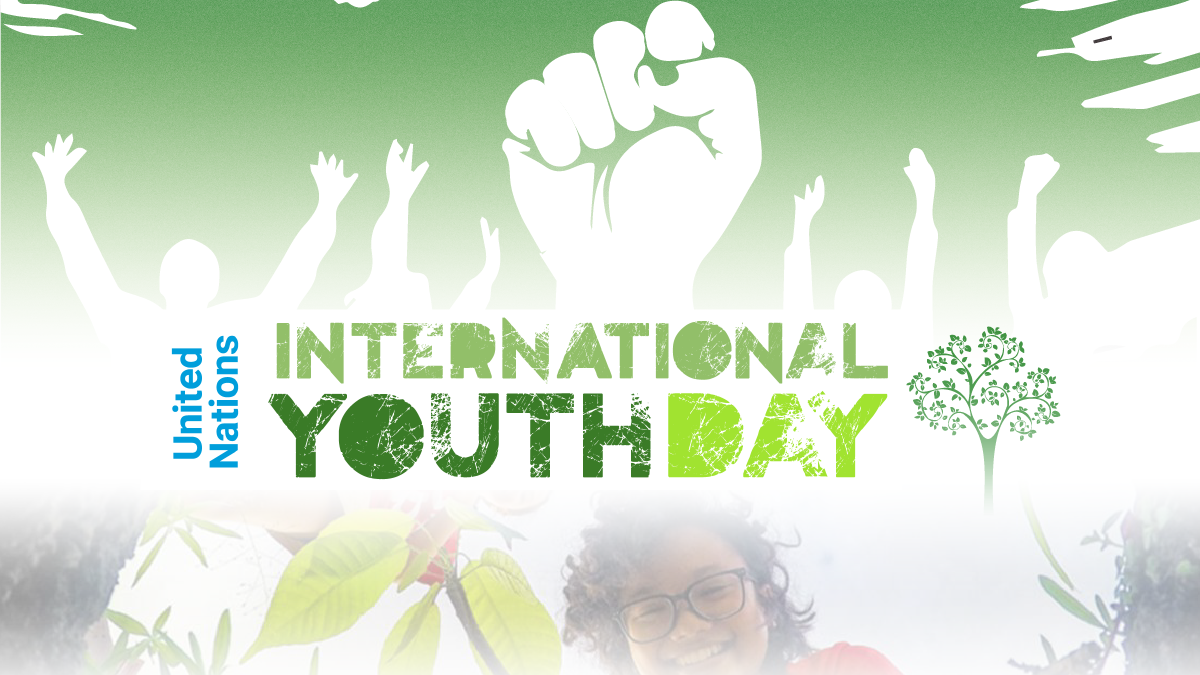
The current global climate change crisis, characterized by devastating floods, droughts, extreme temperatures, and other environmentally driven catastrophes, underscores the urgent need for a comprehensive response. In this context, the significance of cultivating green skills, particularly among the youth, cannot be overemphasized. According to the United Nations data, Africa is home to the world’s youngest population, with 70% of sub-Saharan Africa under 30, further amplifies the imperative to harness this demographic dividend for the continent’s growth.
This particular point in time demands not only urgent action but a strategic approach that extends beyond short-term solutions. It is an approach that requires the integration of environmental considerations into every facet of our society, from economic models to educational systems. The concept of green skills encapsulates this holistic approach, encompassing a spectrum of competencies, knowledge, and capacities that equip individuals to partake in sustainable practices. These skills span from curbing environmental challenges to advancing sustainable development and abating the far-reaching impacts of climate change.
Youth, standing at the nexus of technological innovation, social dynamism, and visionary thinking, are uniquely positioned to drive transformative change. The rationale behind placing an emphasis on empowering youth is rooted in the recognition that they represent a potent force for shaping the future. By imparting green skills to this cohort, we not only prepare them for sustainable career paths but also empower them to ignite a paradigm shift towards eco-conscious decision-making and behaviors.
At its core, green skills foster a profound understanding of the intricate interplay between human activities and the environment. Empowering youth with green skills is a key strategy for making our future more sustainable in various ways.
Green skills encompass a diversified spectrum of proficiencies, each with a distinctive role in cultivating a sustainable future such as:
Innovation and Technology
Youth with green skills are equipped to develop and implement innovative technologies and solutions that reduce environmental impact. They can drive advancements in renewable energy, sustainable agriculture, waste management, and clean transportation, leading to more resource-efficient and eco-friendly practices.
Adoption of Sustainable Practices
When youth are educated about green practices, they can influence their families, communities, and workplaces to adopt more sustainable behaviours and practices. The ripple effect of this would be widespread adoption of eco-friendly habits, such as energy conservation, recycling, and responsible consumption.
Responsible Consumerism
When they are green-aware, the youth are more likely to make informed and environmentally conscious consumer choices. Their demand for sustainable products and services can drive businesses to adopt greener practices and supply chains, contributing to a shift toward more sustainable production and consumption patterns.
Environmental Advocacy
When empowered with green skills, the youth can play a key role in being vocal advocates for environmental conservation and sustainable development. They can participate in activism, lobbying for policy changes, and raising awareness about critical environmental issues, driving societal and governmental action.
Policy and Governance
Green-skilled youth can become influential leaders and policymakers, shaping legislation and policies that prioritize sustainability. Their insights can help drive the adoption of regulations supporting clean energy, waste reduction, conservation, and other eco-friendly initiatives.
Climate Change Mitigation and Adaptation
Youth can actively engage in efforts to mitigate climate change through projects like afforestation, renewable energy deployment, and carbon reduction initiatives. They can also contribute to community-based adaptation strategies to cope with the effects of a changing climate.
Local Community Development
Empowering youth with green skills enables them to engage in community development projects that enhance quality of life while preserving natural resources. They can lead initiatives like community gardens, eco-friendly infrastructure, and sustainable tourism, contributing to holistic local development.
Education and Outreach
With the proper skills and education, the youth can serve as educators and role models, sharing their knowledge about sustainable practices with peers, family members, and the broader community. This multiplier effect can lead to a more informed and environmentally conscious society.
Transgenerational Knowledge Transfer
As empowered youth become the future leaders and mentors, they can pass on their green skills and knowledge to subsequent generations, ensuring the continuation of sustainable practices and values.
Cultural and Social Integration
Green-skilled youth often recognize the interdependence of environmental and social issues. They can work toward inclusive and equitable sustainability, addressing environmental challenges while promoting social justice and cultural preservation.
By investing in the education and empowerment of youth with green skills, we are nurturing a generation that is prepared to lead the way toward a more sustainable future. Their actions and choices can drive positive change across various sectors, fostering a healthier planet and a higher quality of life for all.
Article by Juliet Hinga
Top of Form
AtArt
Share This Story, Choose Your Platform!
Your journey to business excellence starts here. Subscribe today and be at the forefront of innovation and leadership.









